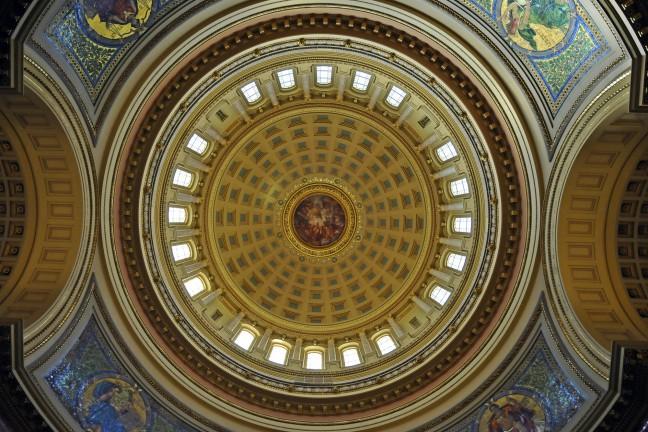This past weekend at the state Republican Party convention, attendees supported Gov. Scott Walker as the 2016 presidential nominee, according to a WisPolitics.com straw poll. Although Walker has proven himself to be a consistent and strong candidate, his ascension to the Oval Office would be completely unprecedented and improbable.
Walker clearly has an aptitude for making the most out of any situation, no matter how politically damaging it may appear. He regularly emerges from a crisis looking no worse for wear, while seizing upon rare political opportunities and sticking strongly to his convictions throughout.
For example, although falling dismally short on his 2010 campaign promise to create 250,000 Wisconsin jobs by 2015, Walker is still obstinately sticking to his promise, while acknowledging that voters aren’t likely to punish him for it.
And Wisconsin residents will never forget Walker’s survival of the recall vote, brought on by his decision and follow-through of cutting collective bargaining rights. Not only did Walker emerge victorious, the first governor in the nation to do so, but his hard-fought battle devastatingly wounded opponents and Democrats.
Despite Walker’s resilience, talent — and frankly put, luck — the idea of President Scott Walker is still hard to come to terms with. Although New Jersey Gov. Chris Christie fell from the public’s good graces following the bridge fiasco, which has helped Walker become a more viable option, Wisconsin’s governor has had some scandals of his own.
While Walker was Milwaukee County executive from 2002 to 2010, a number of his staffers and associates were convicted with criminal convictions. Even when the John Doe emails about that investigation were released, Walker kept his cool, completely unfazed by the proceedings, and he survived the incident’s aftermath with his reputation rather intact. However, it’s inevitable that, were he to be a viable candidate for president, this would be rehashed on a much larger, more inescapable scale, and the results could be quite different and exceedingly more detrimental to the Walker persona.
In addition to those potential roadblocks, Walker has an additional obvious disadvantage should he become a serious presidential candidate: no college diploma. The last individual in such a position was Harry Truman, and that was 1945 to 1953, when America was in a dramatically different state with dramatically different expectations for its political leaders.
All this aside, consider the implications for Wisconsin if Walker were to win his re-election campaign in November, then run for president in 2016. Essentially, voters in Wisconsin must consider the fact that, instead of simply electing Walker to assume the governorship, we may in fact be electing Lt. Gov. Rebecca Kleefisch for that position. If Walker does indeed seriously run for president, which seems like a safe assumption to make, Kleefisch will basically be calling the shots in Wisconsin at the time Walker starts campaigning. And if Walker were to become president, Kleefisch would finish serving the rest of the four-year term as governor.
Essentially, Wisconsin voters must take a hard look at not only the candidates running for governor, but also Kleefisch. Although Walker is the steadfast face of the governor’s race, it is all too likely that Kleefisch could play a greater role in running the affairs of the state.














